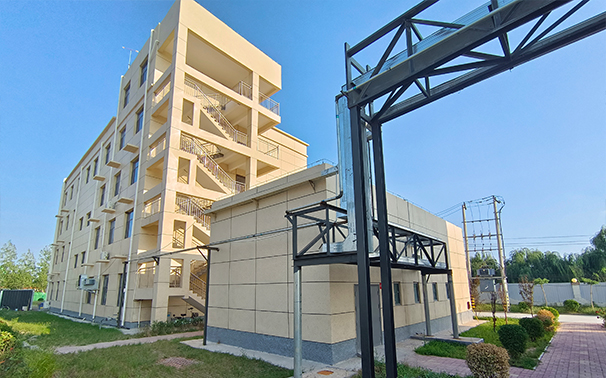Effective Inhibitors for Scaling in Cooling Tower Systems and Their Benefits
Understanding Cooling Tower Scale Inhibitors Importance and Applications
Cooling towers play a crucial role in modern industrial and commercial processes, providing essential temperature regulation and heat dissipation. However, as with many systems, they are susceptible to various operational issues, one of the most significant of which is scale formation. This article aims to explore the concept of cooling tower scale inhibitors, their importance, functionality, and applications.
What is Scaling?
Scaling in cooling towers refers to the formation of mineral deposits on the surfaces of the system due to evaporation and concentration of water. Common offenders in scaling include calcium carbonate, calcium sulfate, and silica. As water evaporates under high temperatures, the concentration of these minerals increases, leading them to precipitate out of the solution and form solid deposits. These deposits can negatively impact the efficiency of cooling towers, leading to reduced heat transfer efficiency, increased energy consumption, and potentially costly equipment damages.
The Importance of Scale Inhibitors
The role of cooling tower scale inhibitors is to prevent the formation of these mineral deposits. The use of these chemicals is essential for several reasons
1. Enhanced Efficiency Scaling leads to reduced heat transfer efficiency, which means that more energy is required to achieve the same cooling effect. By preventing scaling, cooling tower scale inhibitors help to maintain optimal system performance and reduce energy costs.
2. Reduced Maintenance Costs Regular maintenance and cleaning of scaled components can be labor-intensive and costly. Scale inhibitors can significantly reduce the frequency and severity of scaling issues, thus lowering maintenance expenditures over time.
3. Extended Equipment Lifespan The wear and tear associated with scaling can lead to premature equipment failure. By minimizing scale buildup, inhibitors contribute to the longevity of cooling tower components, thus providing savings in capital expenditures.
4. Environmental Benefits By maintaining efficient cooling tower operations, scale inhibitors can help in reducing the energy footprint of a facility, contributing to more environmentally friendly operations.
How Do Scale Inhibitors Work?
Cooling tower scale inhibitors are typically formulated from organic or inorganic compounds, which function to modify the behavior of scale-forming minerals in water
. These inhibitors can work through several mechanismscooling tower scale inhibitor

1. Threshold Treatment Many modern inhibitors work by maintaining a high concentration of scale-forming minerals in a dissolved state, thereby preventing them from precipitating and forming deposits. This process is often referred to as threshold inhibition.
2. Dispersion Some scale inhibitors operate by interspersing scale-forming particles in the water, preventing them from agglomerating. This reduces the chances of deposits forming on surfaces.
3. Sequestration Certain inhibitors chemically bind to scale-forming ions, effectively inhibiting their ability to participate in scaling processes. These chelating agents stabilize the ions in a soluble state.
4. Crystal Modification Some advanced scale inhibitors alter the crystal structure of the forming crystals, making them more soluble and less likely to adhere to surfaces.
Types of Cooling Tower Scale Inhibitors
There are various types of scale inhibitors available on the market, tailored for different water chemistries and operational conditions. Some of the commonly used inhibitors include
1. Phosphonates These are among the most widely used scale inhibitors, effective against calcium carbonate and sulfate scales.
2. Polycarboxylates Known for their excellent dispersing properties, polycarboxylates can effectively reduce scaling and also provide corrosion inhibition.
3. Sulfonated Polymers These compounds are particularly effective in situations with high hardness levels and are formulated to tackle multiple scale types.
4. Zinc-Based Inhibitors These provide both scale inhibition and corrosion protection, making them a popular choice in some cooling systems.
Conclusion
In conclusion, cooling tower scale inhibitors are vital components in ensuring the efficient operation and longevity of cooling tower systems. Their ability to prevent the formation of scale not only enhances energy efficiency and reduces maintenance costs but also extends the operational life of equipment and contributes to an organization's sustainability goals. As industrial demands continue to grow, the role of innovative cooling tower scale inhibitors will only become more significant, paving the way for more efficient and environmentally friendly cooling solutions. Investing in appropriate scale inhibition strategies can yield substantial benefits, making it an essential consideration for facility management and operations.
-
Water Treatment with Flocculant Water TreatmentNewsJun.12,2025
-
Polymaleic AnhydrideNewsJun.12,2025
-
Polyaspartic AcidNewsJun.12,2025
-
Enhance Industrial Processes with IsothiazolinonesNewsJun.12,2025
-
Enhance Industrial Processes with PBTCA SolutionsNewsJun.12,2025
-
Dodecyldimethylbenzylammonium Chloride SolutionsNewsJun.12,2025





